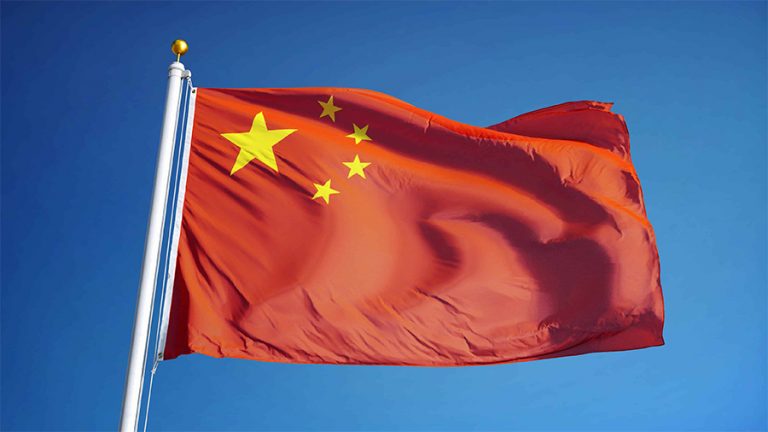
By Qu Song, Yang Xun, Xie Yahong, People’s Daily
The Chinese government recently issued a series of policies to better attract and utilize foreign capital, which further boosted the confidence of foreign enterprises in their future development in China.
According to these policies, China will advance high-level opening up, expand market access, ensure national treatment for all foreign-invested enterprises, continue to advance its accession into the Comprehensive and Progressive Agreement for Trans-Pacific Partnership (CPTPP) and the Digital Economy Partnership Agreement(DEPA), and provide convenient conditions for foreign enterprises and individuals that visit China for investment and trade negotiations.
Enterprises would “vote with their feet” if the business environment of a country is poor, said Matthew Ye from Michelin, a multinational tire manufacturing company.
“Over the past more than three decades, Michelin has witnessed China’s reform and opening up and the constant optimization of the business environment in the country,” Ye told People’s Daily, adding that foreign enterprises are gaining more and more confidence in the Chinese market as China works to ensure national treatment for all foreign-invested enterprises, and joins hands with relevant parties to build an open market and promote trade and investment facilitation.
Ruan Linjuan, vice president of IKEA China, told People’s Daily that the enactment and implementation of the Foreign Investment Law in China has made the business environment more stable, equal, transparent and predictable, and enhanced IKEA’s confidence in investing in China.
“In the past years, we saw the efforts of the Chinese government at all levels to help foreign enterprises integrate into the new development paradigm of China, which was very beneficial to our business development in the country,” she noted.
Gong Anming, executive vice president of Elekta, a leader in precision radiation therapy, said China’s Foreign Investment Law has boosted the confidence of multinational corporations, including Elekta, in their long-term development in China.
According to him, Elekta has built a factory in China that adopts completely the same techniques and standards as its factories in Europe.
“Thanks to the strategic deployment of the factory and a more reliable supply chain, the Chinese factory of Elekta has provided its global clients with more than 1,000 sets of linear accelerators, growing into the company’s largest production base in the past three years,” Gong said.
Many multinational corporations consider China a promising driving force for global innovation. BMW board member Frank Weber noted that China has made remarkable achievements in digitalization thanks to its accelerated innovation. The German automaker’s Chinese R&D team has developed into the largest one globally outside its headquarters in Munich.
“The Chinese market drives BMW to continue innovating, and many local suppliers in China have also improved their capability, becoming benchmarks in the industry,” Weber said.
Jim Misener, senior director of product management of Qualcomm Technologies, told People’s Daily that China is currently spearheading the development in the intelligent connected vehicle sector.
He said the Chinese government has rolled out a series of plans and policies to promote the development of the sector and accelerate standard-making and technological upgrading. The country’s innovation capability, huge market, and strong government support are leading the global development of electric vehicles and relevant applications, he added.
Liu Tao, managing director of Accenture Greater China, said with the Foreign Investment Law and a series of policies, China is actively fulfilling its promises of opening up. Accenture sees that Chinese enterprises are following the trend of the digital economy and continuously investing in digitalization, he added.
“Open and orderly market and business environment will play an important role in exploring new opportunities for development,” Liu said.
Irina Ananyeva, spokesperson at Bosch said the Fortune Global 500 company is expanding its investment in the Chinese market and introducing globally advanced production technologies to China.
She noted that China is the world’s largest auto market, which is vital and resilient, and the company is confident about the Chinese market’s prospects.
China is a market of strategic importance for Merck in terms of both its size and growth potential, said Timo Breiner, spokesperson for the pharmaceutical company.
According to him, Merck plans to invest around 100 million euro ($108 million) in the next six years in expanding its production base in Wuxi, east China’s Jiangsu province, and put it into operation before 2024. Many departments of the company have investment projects in China that are worth hundreds of millions of euros, he added.
Zeng Xiwen, vice president for Unilever, noted that China has become one of the fastest-growing markets for consumer goods companies, and currently the company is expanding its industrial landscape in China.
“In 2022, we built an ice cream factory with an investment of nearly a billion yuan ($149 million) in Taicang, east China’s Jiangsu province. We also unveiled in Guangzhou our first full-line production and marketing base in China with a total investment of nearly 2 billion yuan. The base, upon completion, will not only serve the Chinese market but also supply overseas consumers relying on the regional advantages of the Guangdong-Hong Kong-Macao Greater Bay Area,” Zeng said.










